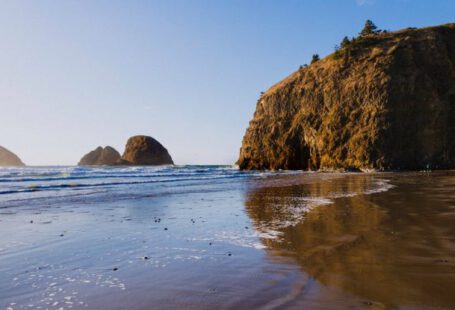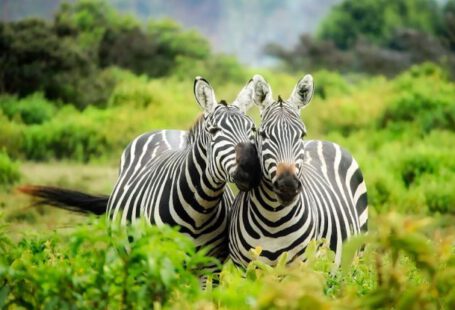Exploring the Rainforest Without Harming Its Fragile Ecosystem
Venturing into the lush greenery of a rainforest is a dream for many nature enthusiasts. The vibrant biodiversity, the soothing sounds of exotic birds, and the fresh scent of blooming flowers create an unparalleled sensory experience. However, as the world becomes increasingly conscious of the impact of human activities on the environment, the question arises: Can you experience the rainforest without impacting it? Let’s delve into this dilemma and explore how we can enjoy the wonders of the rainforest while minimizing our ecological footprint.
Responsible Tourism: A Balancing Act
Tourism in rainforest regions can have both positive and negative effects on the delicate ecosystem. On one hand, it can contribute to conservation efforts by raising awareness and providing financial support for the protection of these vital habitats. On the other hand, uncontrolled tourism can lead to deforestation, habitat destruction, and disruption of wildlife. Finding a balance between experiencing the rainforest and preserving its integrity is crucial for sustainable tourism.
Choosing Eco-Friendly Accommodations
One way to minimize your impact on the rainforest is by opting for eco-friendly accommodations. Look for lodges and resorts that have implemented sustainable practices such as using renewable energy sources, reducing water consumption, and supporting local conservation initiatives. By staying at eco-conscious establishments, you can support the local economy while treading lightly on the environment.
Guided Tours with a Conservation Focus
When exploring the rainforest, consider joining guided tours led by knowledgeable local guides with a conservation focus. These tours not only provide valuable insights into the flora and fauna of the rainforest but also emphasize the importance of protecting these ecosystems for future generations. By learning about the challenges facing rainforest conservation, you can become a more informed and responsible traveler.
Leave No Trace: The Golden Rule of Eco-Tourism
The principle of “Leave No Trace” is essential when visiting sensitive natural areas like the rainforest. This means minimizing your impact by following designated trails, refraining from littering, and avoiding disturbing wildlife. By practicing Leave No Trace principles, you can enjoy the beauty of the rainforest without leaving a negative mark on its fragile ecosystem.
Supporting Local Communities
Another way to experience the rainforest responsibly is by supporting local communities and indigenous tribes who depend on these ecosystems for their livelihood. By purchasing locally made crafts, participating in cultural activities, and respecting traditional customs, you can contribute to the preservation of indigenous cultures and sustainable development in the region.
Offsetting Your Carbon Footprint
Traveling to remote rainforest destinations often involves long-haul flights and transportation that contribute to carbon emissions. To offset your carbon footprint, consider supporting reforestation projects or investing in carbon offset programs that help mitigate the environmental impact of your travels. By taking proactive steps to reduce your carbon footprint, you can enjoy the wonders of the rainforest with a clear conscience.
Preserving the Rainforest for Future Generations
In conclusion, experiencing the rainforest without impacting it requires a mindful approach that balances conservation with exploration. By choosing eco-friendly accommodations, joining guided tours with a conservation focus, practicing Leave No Trace principles, supporting local communities, and offsetting your carbon footprint, you can enjoy the beauty of the rainforest while contributing to its preservation. Let’s cherish these precious ecosystems and ensure that future generations can also marvel at the wonders of the rainforest.





